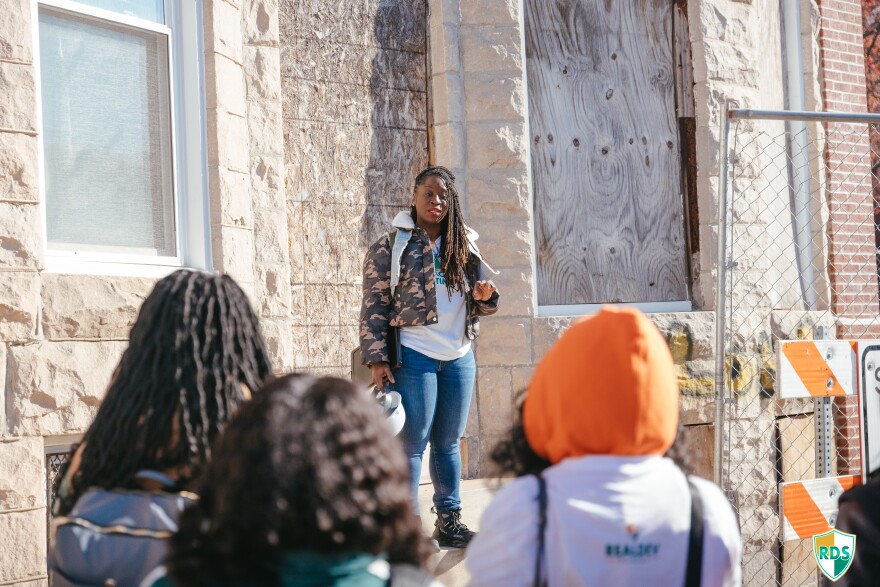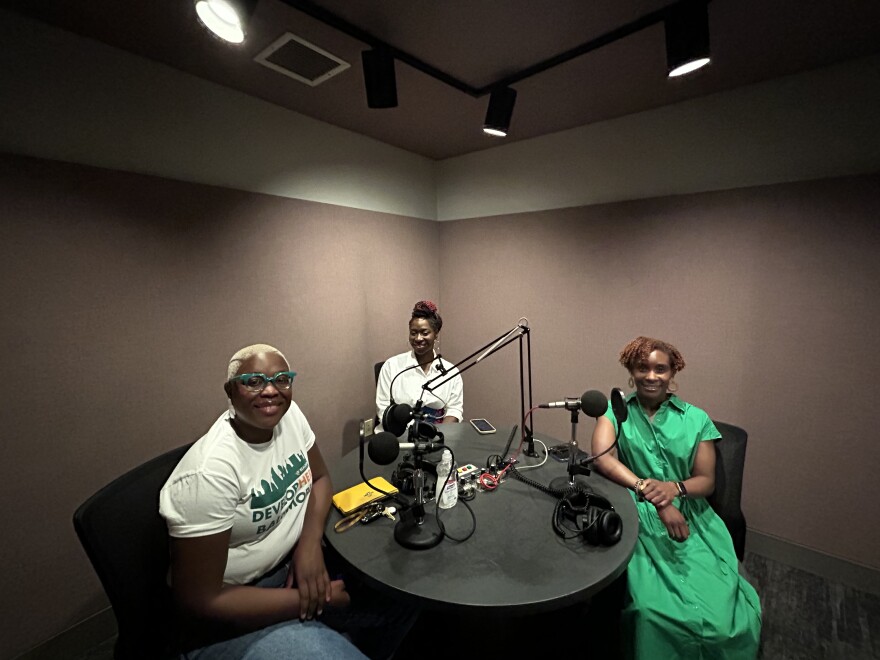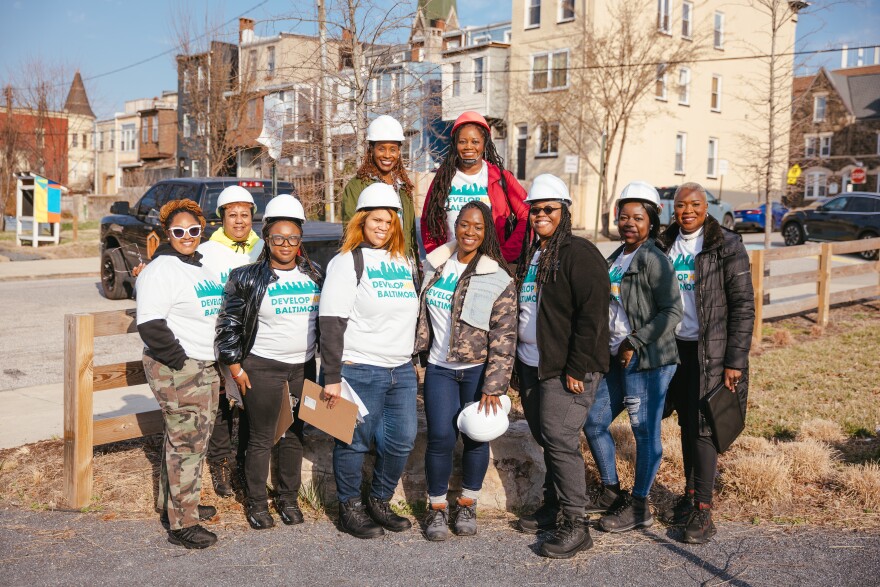In some of Baltimore’s most neglected neighborhoods, you’ll hear a lot of drilling, hammering and generators buzzing as contractors work to renovate abandoned homes — often without electricity.
It’s part of a broader effort to address the city’s more than 12,000 vacant properties.
Several community groups in Baltimore will receive $30 million in state funds to reduce blight. One of them, O’Hara Development Partners CDC, plans to revitalize properties in the Midway neighborhood.
But the company’s founder isn’t just focused on bricks and mortar — she wants to grow the pipeline of women entering the male-dominated field of real estate development.

Joanna Bartholomew is the founder of RealDev School, a training program launched by O’Hara Development Partners.
“We have a goal to educate 1,000 women in the city of Baltimore,” Bartholomew said.
Its signature initiative, DevelopHER, is a five-month course training the next wave of female real estate developers — women who aren’t afraid to break a nail if it means rebuilding a block.
“We consistently get messages: ‘Can you come to this city? Can you come to this city?’ But we really want to go deep here,” she said. “To touch 1,000 women academically and prepare them.”
The hybrid course costs $18,500 and includes hands-on learning, access to industry experts and surprise giveaways. Students have received title deeds, cash — even land, said Bartholomew.
State funds do not cover tuition.
Tameka Harris, the program’s director, said what sets the school apart is making sure the future builders have a solid foundation themselves.
“We start this program talking about identity before we even talk to you about bricks and laying stones,” Harris said. “We talk about who you are. Who do you want to be? And we do spirit work — soul work, really. We can’t build on shaky ground.”
For recent graduate Stacey Hampton, that soul work has given her the tools to take up space.
“Now, I feel comfortable bringing my seat to the table, as Shirley Chisholm told us to do,” Hampton said. “I can stand with other developers in an industry that is mostly male, speak knowledgeably and take a project from the ground up.”
As more women enter the field in a city with a high number of distressed properties, the team added that one question keeps popping up.
“I’ve had men ask, ‘Where’s the DevelopHIM Baltimore?’” Harris said, laughing. “And we’re like, ‘Okay, guys.’”
Bartholomew said men can join through one-on-one coaching.

The idea for the program came about unexpectedly.
“When DevelopHER Baltimore started, we had no idea there were this many women who were like, ‘Oh no, I want in,’” she said.
“We didn’t do a bunch of marketing. We created a flyer or two and put it out on social media,” Bartholomew continued. “Before we knew it, ‘Hello, I’m filling out my application. Hello, what’s the payment plan?’”
The program has a waitlist as demand continues to grow.
Bartholomew’s development firm — along with Central Baltimore Partnership — is receiving $500,000 from the state to rehabilitate vacant properties in Midway.
The funds come from the Baltimore Vacants Reinvestment Initiative, the state’s latest effort to reduce the city’s stock of abandoned properties.
It funnels millions to local groups with shovel-ready plans and a proven track record of repairing, selling, or returning homes to the tax rolls.
According to Allison Foster, a spokesperson for the Department of Housing and Community Development, these groups can unlock more funding if they show progress by completing projects before applying for more.
However, if they move too slowly, they could lose out.








